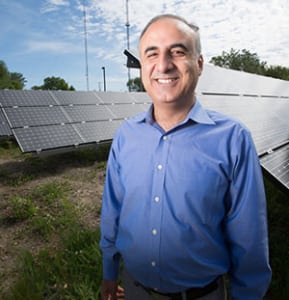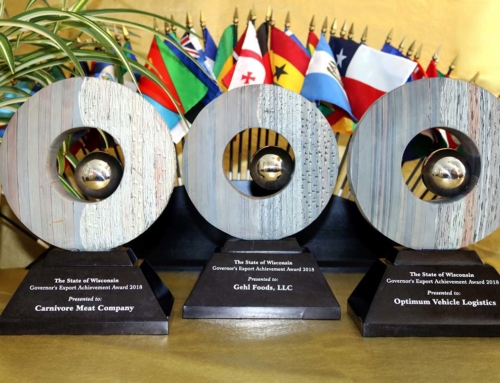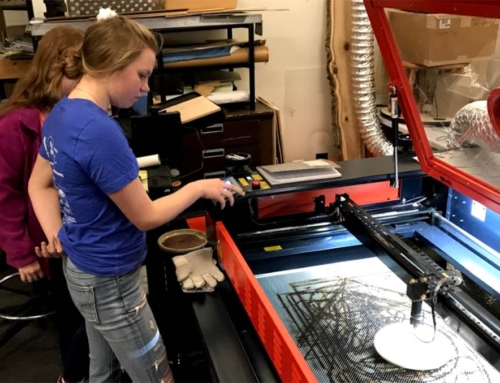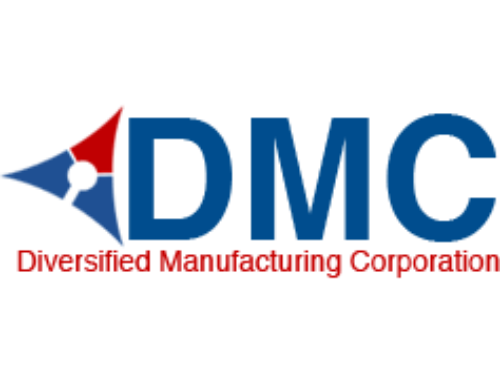The growing capability of everyday objects to send and receive data—the “Internet of Things” (IoT)—represents what many consider to be the world’s next industrial revolution. Given this new reality, it is important that Wisconsin companies are equipped to take advantage of the opportunities created by new technology and new thinking that is already driving transformative change in business and in our daily lives. To help establish a competitive advantage for Wisconsin companies in the IoT market, which is estimated to reach $124 billion by 2021, a statewide consortium of industry groups, universities, businesses and economic development organizations are working together to build the Connected Systems Institute on the University of Wisconsin-Milwaukee (UWM) campus.
“There’s currently a gap between industry on the one hand, and research and education on the other,” says Dr. Adel Nasiri, associate dean for research at UWM, where the first-of-its-kind institute will be based. “The Connected Systems Institute will serve as a central point where industry representatives and scholars can collaborate on IoT technologies.”
UWM is devoting 3,000 square feet of the east wing of its library to the first phase of the Connected Systems Institute, with expansion options that include up to 10,000 square feet in the highly visible, central location on campus.
When fully operational, the Connected Systems Institute will house state-of-the-art IoT simulation lab facilities that will allow participating companies the opportunity to test end-to-end production solutions, from suppliers to customers. “The penetration of cyber-physical systems into the supply chain holds tremendous promise for increasing efficiency, productivity and safety,” says Nasiri. In addition to helping Wisconsin companies tap the latest IoT technology, the Connected Systems Institute will also help ensure that Wisconsin continues to meet the evolving demands of increasingly technical advanced manufacturing jobs.

Dr. Adel Nasiri, associate dean for research at UWM
Planning for the Connected Systems Institute began in January 2016, when UWM representatives met with a leadership team at Microsoft, whose CEO, Satya Nadella, is a UWM graduate. “With 35 Milwaukee-area companies with Microsoft connections, including Rockwell Automation and Johnson Controls, Milwaukee is an ideal location for this type of collaboration,” observes Nasiri. A $136,000 planning grant from Rockwell Automation to UWM allowed university researchers to study first-hand leading IoT industry practices in Germany, China, Taiwan, Singapore and the U.S. This planning phase for the Connected Systems Institute was completed in August. In September, Rockwell Automation committed an additional $1.7 million to the institute.
While the Connected Systems Institute location in Milwaukee places the research center in the heart of one of the nation’s leading industrial and manufacturing hubs, Kelly Armstrong, sector strategy development director for the Wisconsin Economic Development Corporation (WEDC), points out that the benefits of the institute will be statewide. WEDC is investing $900,000 in the Connected Systems Institute to cover educational, research and test bed application lab costs. “The partnerships we’ve created with University of Wisconsin-System schools across the state will ensure that businesses throughout Wisconsin have access to the Connected Systems Institute’s experts and resources,” says Armstrong. In addition to UWM, Microsoft, Rockwell Automation, A.O. Smith, Eaton Corporation and Johnson Controls, planning for the Connected Systems Institute has received input from a multidisciplinary consortium that has included representatives of UW-Madison, UW-Platteville, UW-Stout and Eaton, as well as additional small, midsize and large companies involved in IoT strategies.
The urgent need that is driving the development of the Connected Systems Institute has fueled an aggressive timeline for getting the facilities up and running. “Companies in Wisconsin really need help in this area,” says Nasiri, who forecasts hiring an interim executive director before the end of 2017 and finalizing the facilities plan by February 2018. “We will develop the institute’s curriculum in parallel with the lab build-out,” he notes. Executive education program courses will be offered by the institute by December 2018, planning for the MS program will start in the fall, and the labs will open the following spring.
Memberships in the Connected Systems Institute range from $200,000 for academic participants with a $20,000 annual fee to $2.5 million multi-year sponsorships for founding members, including sustaining and associate memberships at lower-level commitments. Fee-based user agreements are also available for small and midsize businesses. Memberships include use of the institute’s facilities and equipment, participation in pre-competitive research, the ability to conduct company-specific research, educational opportunities, conference attendance and more.









FOLLOW US